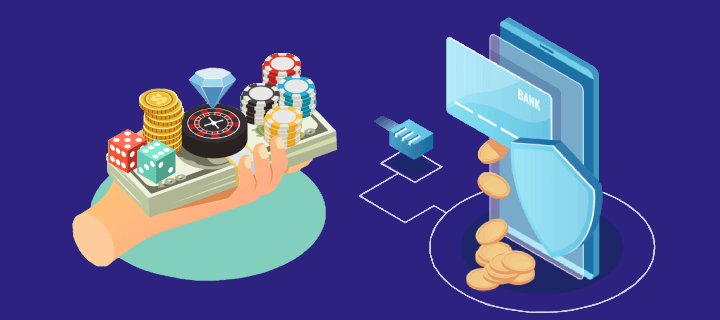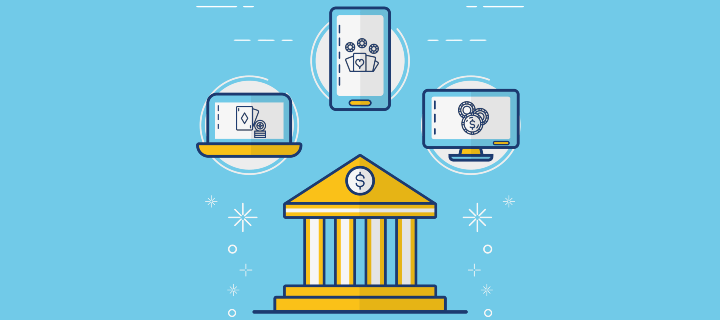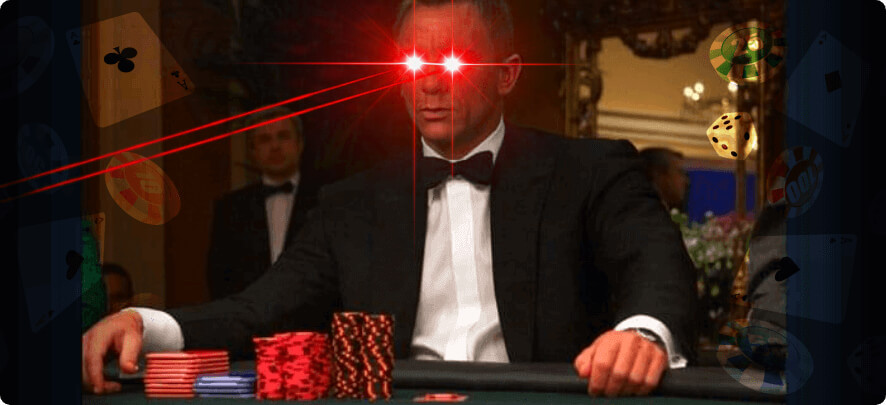What Happens If a Card Is Exposed? | Poker Rules for Exposing Cards

A card can be unintentionally or purposely exposed at any point during a hand. Because this might be a perplexing scenario, I wanted to consolidate all of the revealing cards poker rules in one location.
What are the poker rules for exposing cards? It’s a misdeal if the first or second card is exposed during the deal. Otherwise, the revealed card must be shown to all players before being utilized as the flop’s burn card. During the hand, exposing cards is frequently illegal, and the penalty is decided by local rules. Cards can be revealed freely during the showdown. You must, however, show all of your cards if you show one player your hand.
Because this is a big topic, we’ll go over each of the exposed card rules by case.
Must Read: Books To Learn Poker
Due to Dealer Errors, Cards Have Been Exposed
The most common time for cards to be exposed accidentally is during the deal. This is especially true when there is no dedicated dealer present and the players are responsible for their own dealing.
What Happens If a Card in the Deck Is Turned Over and Exposed?
If the dealer notices one of the cards in the deck is face up when distributing the cards, he or she must show the card to all players and then take it totally out of play for the duration of the hand.
The transaction then proceeds as usual.
What Happens If a Card Is Turned Up While Dealing?
The hand is automatically ruled a misdeal if the first or second card (to the blinds) is exposed. After that, all of the cards are reshuffled, and the dealing process begins again.
If a card other than the initial two is unintentionally flipped up, the player is removed from the game and the revealed card is placed face up on the table. The transaction then proceeds as usual. The player who had the revealed card receives the last card dealt. On the flop, the revealed card is placed face up on the deck and utilized as the burn card. The card is revealed to all players once more before being burned and placed face down.
A hand is called a misdeal if more than one card is exposed during dealing. The deck is totally reshuffled, and the game begins over.
What Happens If a Burn Card Is Discovered?
If a burn card is revealed during the hand, it is simply disclosed to all players before being placed face down on the burn pile. The game then resumes as usual.
What Happens If the Dealer Doesn’t Burn a Card?
If there aren’t enough burn cards in the burn pile after the flop, turn, or river, the outcome is determined by whether or not players have taken any actions yet.
If no action has taken place yet and the card has been identified, the error has been corrected. Everyone sees the mistakenly revealed card, which is then used as the burn card for that round, as it should have been.
If one or more players have already taken an action, the game will continue as usual. Even if the first player’s action is merely one check, you proceed. This is because, if the board were to be modified later, any action would give the rest of the players unfair information.
Before the hand is finished, players expose their cards.
A card can be exposed in a variety of ways, either unintentionally or purposely, by players. Keep in mind that depending on how and when cards are exposed, local rules may differ. Let’s take a look at the most prevalent treatments.
Before Showdown, can I show one or both cards during a hand?
When playing cash games, you can only show your cards when you’re up against an opponent. Unless you are all-in, the dealer will normally proclaim your hand dead if the pot is multi-way. When you go all-in, your card or cards are turned over face up, and the hand proceeds normally.
You are not allowed to expose your cards before the showdown in tournaments unless all actions on the current street have been completed and all players are all-in. Your hand is normally deemed dead if you disclose your cards and they are multi-way. When you’re heads-up, they’re usually left exposed and the game proceeds.
When you expose cards incorrectly in a tournament, you are normally penalized with a time penalty (usually 10 minutes) when the hand is over.
What Happens If During an All-In Situation, One or More Hole Cards Are Exposed?
If a card is exposed during an all-in, the rules change slightly depending on who showed their cards mistakenly.
There is no penalty for exposing cards if all players are all-in, and play continues.
If only one player goes all-in and reveals his cards, the cards stay face up, and the remaining players play as usual. In most cases, no punishment is imposed.
If a player does not go all-in and reveals his cards in a multi-way pot, the game will continue with a penalty.
Must Read: Good Win Rate
What Are the Showdown Card Showdown Rules?
Players are not allowed to just expose their hands after the hand without according to a few restrictions.
Is it necessary for you to show your cards?
Only the winner is required to show his or her hand during the showdown. To win a pot, however, both cards must be presented.
Players can choose whether to reveal or muck their hand as long as the showdown order is followed. At showdown, though, there is no penalty for showing your cards out of turn.
When you fold your cards, do you show them?
When folding, you don’t have to expose your cards all of the time. You must, however, show both cards if you choose to show one. Furthermore, you are not permitted to disclose your cards to only one or two other players.
You must show all of the players at the table if you show one individual. The “show one, show all” rule is what it’s called.
Angle Shooting Can Be Used To Expose Cards
Angle shooting refers to the use of cunning ways to achieve an advantage that have been planned ahead of time. In order to get an advantage over their opponent, some unscrupulous players would occasionally break the rules.
Exposing a Card to Provoke a Specific Reaction from an Opponent
This is something that happens a lot in cash games. They will show their opponents a card in order to provide incomplete knowledge and steer them down a specific path, either to a call or a fold.
A player holding a non-obvious straight with 36, for example, might present an off-suit 3 on a board when your opponent has expressed concern about your flush. Then you proudly show down your winner when they call with their two-pair (or whatever).
Let’s imagine you had the Ace of Spades in the identical situation and you could make a Spade flush. You might “accidentally” flip up the Ace and then apologize in order to persuade your opponent to fold a better hand while you have perfect control of the situation.
Allowing a card to be exposed in order to elicit a specific response from an opponent is an example.
Not Burning a Card on Purpose to Get a “Second Chance”
I’ve seen this happen several times in player-dealt games, such as home games or pub poker events, throughout the years. The issue is that until it occurs numerous times in a single session, it is impossible to prove and act upon.
The dealer is involved in the hand and possesses some form of draw, which is how it works. They proceed to deal the turn or river without burning a card in the hopes that no one will notice. Then, if they like the card, they can go about their business as usual. “Oops, I forgot to burn a card,” they say if the card does not aid them. The angle-shooter will then dish out their second chance card to fix “the mistake.”
Last Thoughts
One of the most common rule violations in poker is the exposure of cards, whether by accident or on purpose. It’s also one of the most contentious issues at the table. Now you’ll know exactly what to do if an exposed card situation arises at the table the next time.
Related Questions
In Texas Hold’em, do I have to use both of my cards? Only one card can be used to make your best 5-card hand in Texas Hold’em. Both cards are required to be used in Pot-Limit Omaha.
In poker, do you ever burn a card before dealing? Before dealing the flop, turn, and river, the dealer must always burn one card. The burn card’s function is to prevent cheating by using marked cards. It offers a player an unfair edge if they can see the top card is marked before it is dealt. This problem can be solved by burning a card.
In Texas Hold’em, what if a player only gets one card during the deal? The hand is termed a misdeal if no action has been taken. The one-card hand is ruled dead if one or more players have already acted, and play continues as usual.



